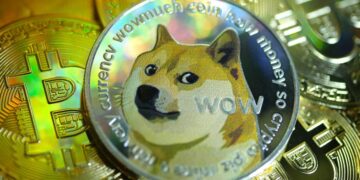Dogecoin
Getty Images
The day after Elon Musk offered to buy Twitter, cryptocurrencies for the most part seem little moved.
Bitcoin remains bound within the $39,000-40,000 trading range, after retracing Wednesday’s gains that propelled the asset to break above $41,000. Ether is hovering at $3,017, up by 1.1% on the day. Both have shed more than 4% over the past week, mirroring the slides in the equities market.
This week, Norway-based crypto analytics firm Arcane Research noted that bitcoin’s 90-day correlation with ether reached 0.91, the highest level since June 2020, while its 90-day correlation with the S&P 500 hit an all-time high two weeks ago.
Leaders and Laggards: Featuring the best and worst-performing assets of the past 24 hours among the 85 largest cryptocurrencies by market capitalization tracked by Forbes. For more information, read this quick Forbes Digital Assets guide.
Yesterday’s leader, zilliqa, the token powering a blockchain project best known for its early implementation of sharding, a technology that splits the platform’s infrastructure into several interconnected networks to support more transactions, is facing a reversal of fortune. The cryptocurrency is down by more than 6% over the past 24 hours, leading the losses among the assets listed on Forbes. Yesterday, the project’s team unveiled its goals for the remainder of the year, which include the introduction of the Ethereum Virtual Machine support and the expansion of decentralized finance-related products.
Among the tokens defying the trend today is dogecoin, which has surged 5.3% over the past 24 hours and is the strongest performer of the month among the top 15 digital assets, with 25% gains. The meme coin has climbed steadily following Musk’s Thursday offer to buy Twitter for $43 billion and take it private.
Price of Dogecoin according to Coinbase
TradingView
Another outperformer of the day is XRP, the native digital asset of the XRP Ledger (touted as a competitor to SWIFT), up by nearly 8% over the past 24 hours. XRP’s rise came after its founder Brad Garlinghouse said Thursday the defense against a lawsuit brought by the U.S. Securities and Exchange Commission was going “exceedingly well.” The SEC is arguing that the XRP token was issued and sold as an unregistered security to U.S. investors.




